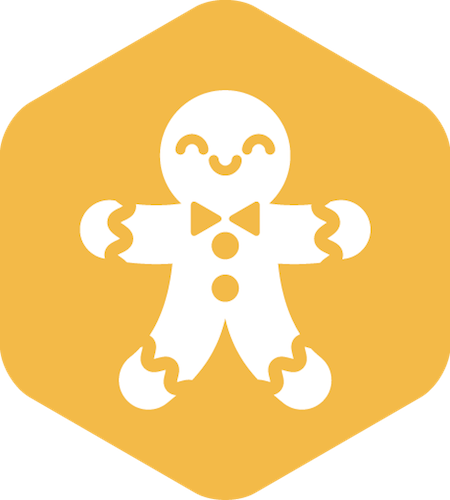Cookies plugin for Craft CMS 5.x
A simple plugin for setting and getting cookies from within Craft CMS templates.

Requirements
This plugin requires Craft CMS 5.0.0 or later.
Installation
- Install with Composer via
composer require nystudio107/craft-cookiesfrom your project directory - Install the plugin via
./craft install/plugin cookiesvia the CLI -or- in the Craft Control Panel under Settings > Plugins
You can also install Cookies via the Plugin Store in the Craft Control Panel.
Setting cookies
All three of these methods accomplish the same thing:
{# Set the cookie using 'setCookie' function #}
{% do setCookie( NAME, VALUE, DURATION, PATH, DOMAIN, SECURE, HTTPONLY, SAMESITE) %}
{# Set the cookie using 'setCookie' filter #}
{% do NAME | setCookie( VALUE, DURATION, PATH, DOMAIN, SECURE, HTTPONLY, SAMESITE) %}
{# Set the cookie using 'set' variable #}
{% do craft.cookies.set( NAME, VALUE, DURATION, PATH, DOMAIN, SECURE, HTTPONLY, SAMESITE) %}They all act as a wrapper for the PHP setcookie function. More info
All of the parameters except for NAME are optional. The PATH defaults to / if not specified. The SAMESITE should be either 'None’, 'Lax’ or 'Strict’.
(Note: SAMESITE only works for environments with PHP 7.3 and up)
Examples
{% do setCookie('marvin', 'martian', now | date_modify("+1 hour").timestamp) %}
{# Sets a cookie to expire in an hour. #}
{% do 'marvin' | setCookie('martian', now | date_modify("+30 days").timestamp) %}
{# Sets a cookie to expire in 30 days. #}
{% do craft.cookies.set('marvin', 'martian', '', '/foo/' ) %}
{# Cookie available within /foo/ directory and sub-directories. #}Setting Secure cookies
All three of these methods accomplish the same thing:
{# Set the cookie using 'setSecureCookie' function #}
{% do setSecureCookie( NAME, VALUE, DURATION, PATH, DOMAIN, SECURE, HTTPONLY, SAMESITE) %}
{# Set the cookie using 'setSecureCookie' filter #}
{% do NAME | setSecureCookie( VALUE, DURATION, PATH, DOMAIN, SECURE, HTTPONLY, SAMESITE) %}
{# Set the cookie using 'setSecure' variable #}
{% do craft.cookies.setSecure( NAME, VALUE, DURATION, PATH, DOMAIN, SECURE, HTTPONLY, SAMESITE) %}This function works the same as setCookie but instead of using the PHP setcookie function, it uses the Craft::$app->getResponse()->getCookies()->add to add the cookies via Craft. It also uses craft->security framework to encrypt and validate the cookie contents between requests.
All of the parameters except for NAME are optional. The PATH defaults to / if not specified. The SAMESITE should be either 'None’, 'Lax’ or 'Strict’.
(Note: SAMESITE only works for environments with PHP 7.3 and up)
Examples
{% do setSecureCookie('marvin', 'martian', now | date_modify("+1 hour").timestamp) %}
{# Sets a cookie to expire in an hour. #}
{% do 'marvin' | setSecureCookie('martian', now | date_modify("+30 days").timestamp) %}
{# Sets a cookie to expire in 30 days. #}
{% do craft.cookies.setSecure('marvin', 'martian', '', '/foo/' ) %}
{# Cookie available within /foo/ directory and sub-directories. #}Retrieving cookies
Both of these methods accomplish the same thing:
{# Get the cookie using 'getCookie' function #}
{% do getCookie( NAME ) %}
{# Get the cookie using 'get' variable #}
{% do craft.cookies.get( NAME ) %}Example
{% do getCookie('marvin') %}
{# Get the cookie using 'getCookie' function #}
{% do craft.cookies.get('marvin') %}
{# Get the cookie using 'get' variable #}
{% if getCookie('marvin') %}
{% set myCookie = getCookie('marvin') %}
{{ myCookie }}
{% endif %}Retrieving Secure cookies
Both of these methods accomplish the same thing:
{# Get the cookie using 'getSecureCookie' function #}
{% do getSecureCookie( NAME ) %}
{# Get the cookie using 'getSecure' variable #}
{% do craft.cookies.getSecure( NAME ) %}Example
{% do getSecureCookie('marvin') %}
{# Get the cookie using 'getSecureCookie' function #}
{% do craft.cookies.getSecure('marvin') %}
{# Get the cookie using 'getSecure' variable #}
{% if getSecureCookie('marvin') %}
{% set myCookie = getSecureCookie('marvin') %}
{{ myCookie }}
{% endif %}This function works the same as getCookie but it uses Craft::$app->getRequest()->getCookie() to retrieve the cookies via Craft. It also uses craft->security framework to decrypt and validate the cookie contents between requests.
Deleting cookies
All three of these methods accomplish the same thing:
{# Delete a cookie by passing no VALUE to 'setCookie' function #}
{% do setCookie( NAME ) %}
{# Delete a cookie by passing no VALUE to 'setCookie' filter #}
{% do NAME | setCookie() %}
{# Delete a cookie by passing no VALUE to 'set' variable #}
{% do craft.cookies.set( NAME ) %}Deleting Secure cookies
All three of these methods accomplish the same thing:
{# Delete a cookie by passing no VALUE to 'setSecureCookie' function #}
{% do setSecureCookie( NAME ) %}
{# Delete a cookie by passing no VALUE to 'setSecureCookie' filter #}
{% do NAME | setSecureCookie() %}
{# Delete a cookie by passing no VALUE to 'setSecure' variable #}
{% do craft.cookies.setSecure( NAME ) %}Brought to you by nystudio107




